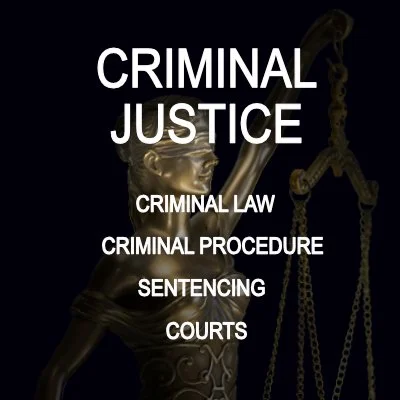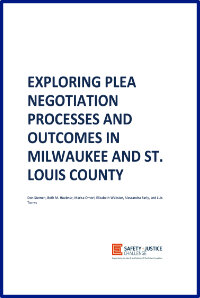By Don Stemen, Beth M. Huebner, Marisa Omori, Elizabeth Webster, Alessandra Early, and Luis Torres
Although guilty pleas are the modal method for criminal case resolution in the US, relatively little attention has been paid to the plea negotiation process. Research suggests that prosecutors drive plea decision-making; however, the decision process is largely hidden and informal. Consequently, little is known about the role that prosecutors and other criminal justice actors play across the process, and even less is known about how these mechanisms have changed over time, particularly during the COVID-19 pandemic. Unpacking these plea negotiation decisions are especially key to understanding racial and ethnic disparities in criminal case processing.
Funded as part of the John D. and Catherine T. MacArthur Foundation's Safety and Justice Challenge Research Consortium, the current study considers guilty plea negotiation processes and outcomes in Milwaukee County, Wisconsin, and St. Louis County, Missouri. Both offices are currently led by reform-oriented attorneys, are are medium-sized offices serving urban and suburban jurisdictions. Over the long tenure of elected District Attorney John Chisholm in Milwaukee, the office has implemented innovative prosecution models such as community prosecution units and diversion programs. In St Louis, recently elected District Attorney Wesley Bell is the first Black person to hold the office, and he ran on a platform of ensuring equity in the system and reducing mass incarceration. The goal of the study is to explore how prosecutors and other court actors approach and make decisions surrounding the plea negotiation process, in addition to investigating the factors that affect plea outcomes. The data used in this report include narratives from interviews with and surveys of local stakeholders including prosecutors, public defenders, judges, private attorneys, and system-involved persons. The report also centers on administrative data collected through agencies' case management systems for criminal cases filed in Milwaukee and St. Louis Counties through 2020.
Safety and Justice Challenge, 2022. 49p.





















